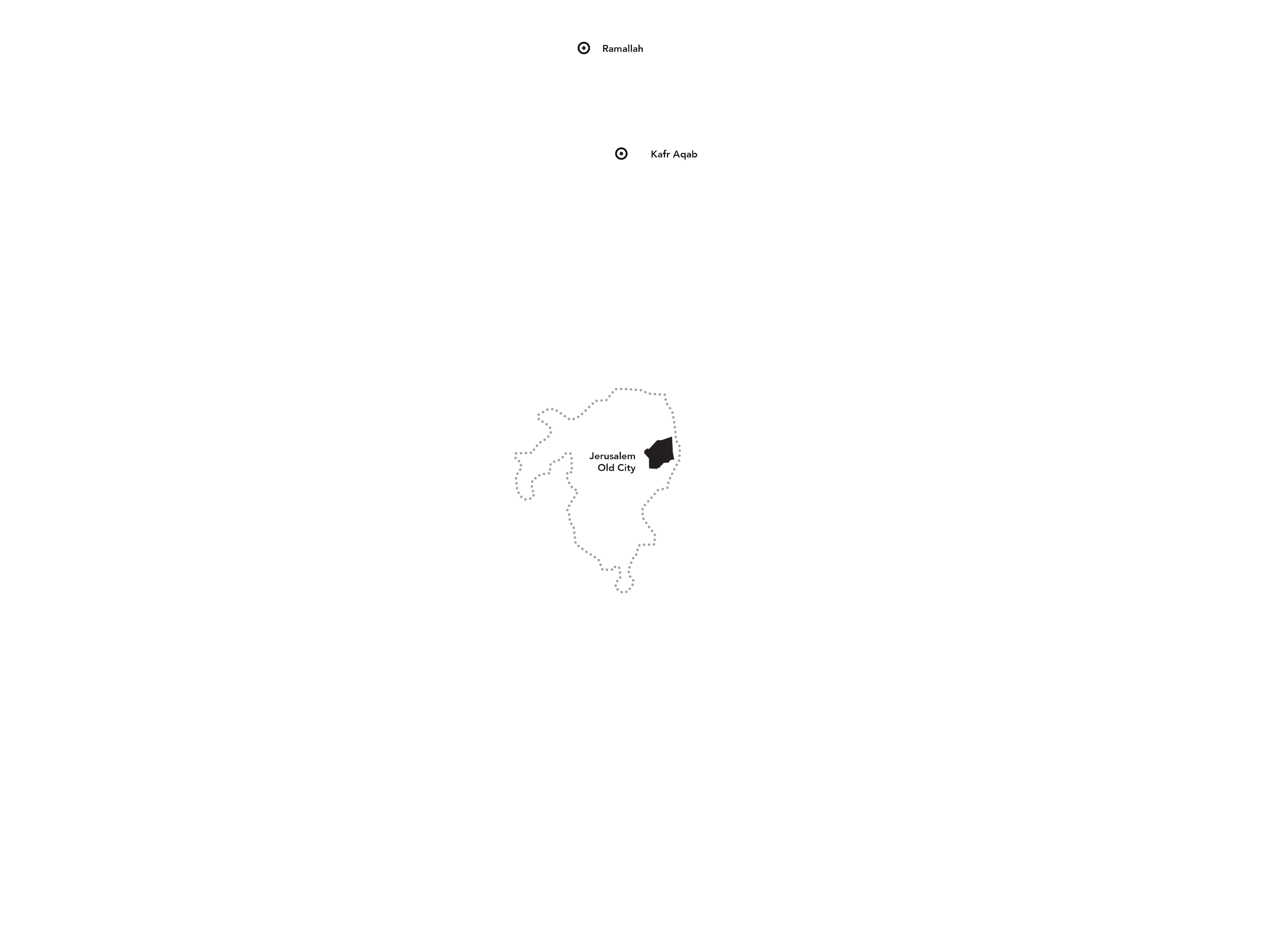PRESENT FUTURES
Mechanics of Ethnocratic Colonial Urbanism
Graduate Thesis 2020
Schiff Foundation Fellowship for Architecture | AIA Henry Adams Medal | Published in MAS Context | Featured in The Funambulist
Within Jerusalem’s city boundary but outside the Separation Wall, the neighborhood of Kafr Aqab is a ledge where Palestinian Jerusalemites resort to live. Behind them is a concrete wall sealing off a city that constantly pushes them out, and ahead of them is a downfall that renders them stateless. With the goal of achieving a 70% Jewish majority in Jerusalem, this lawless place emerges as yet another tool in the Israeli colonial project, which strategically annexes as much land with as few Palestinians as possible.
In Kafr Aqab, time becomes irrelevant as Palestinians live in a state of limbo. Often compared to a refugee camp, its temporariness is served by permanent structures. But in this case, those structures are informal high-rise buildings, rising higher every day, with little infrastructure and no services. The future of this vertically growing density -like its emergence- is shaped by Israeli policies and practices.
This thesis investigates past and current Israeli colonization tactics that have created the Kafr Aqab phenomenon, where architecture and urban planning are instruments of dispossession, displacement, and control. Based on this investigation, the thesis speculates about possible futures for Kafr Aqab and its inhabitants. By examining moments in space and time of idiosyncratic collisions between the urban fabric, military structures, and political boundaries, the thesis reveals the method in which those territorial tools operate in parallel with oppressive legal, civilian, and administrative policies to expand Israel’s territory and consolidate its control, while displacing and fragmenting Palestinian communities.





